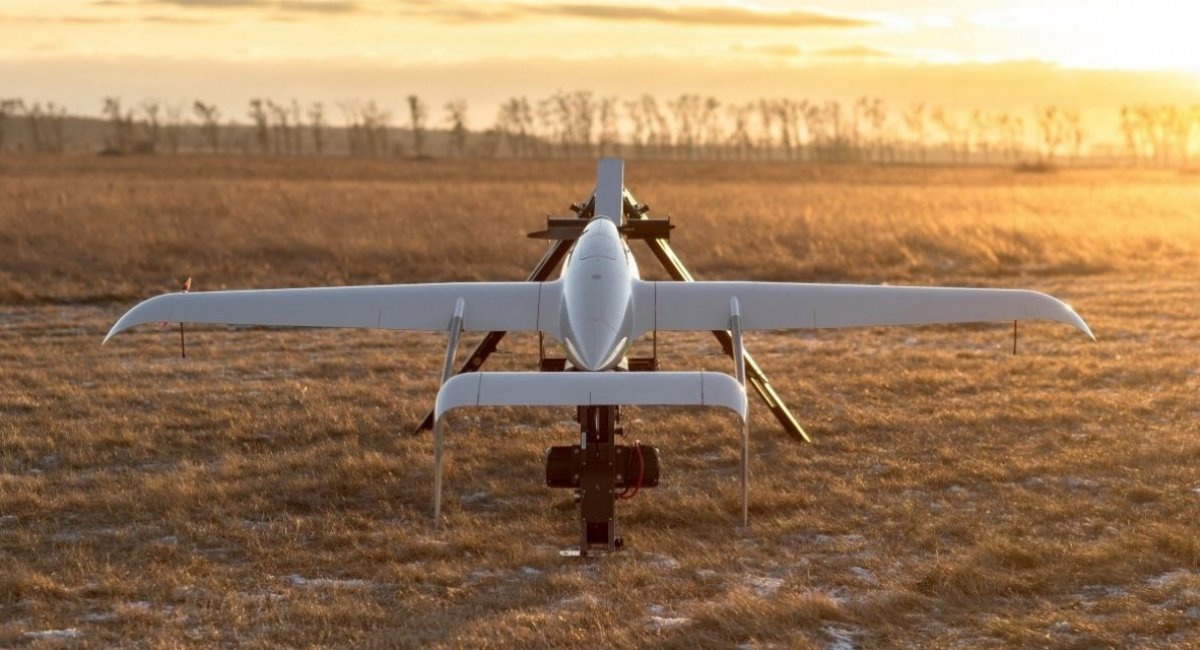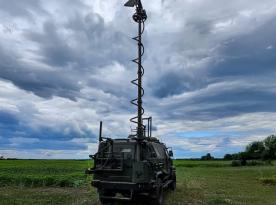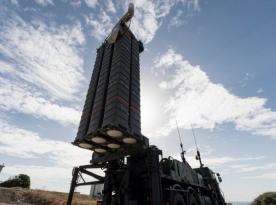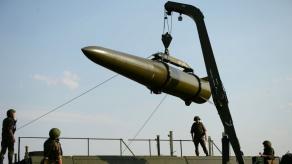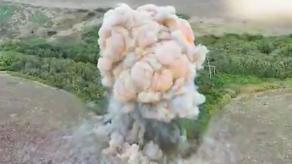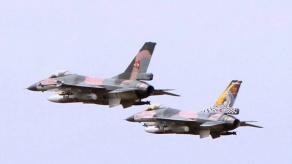Ukrainian drone company Skyeton has announced an ongoing development of a new payload for the Raybird-3 unmanned aerial reconnaissance vehicle, also known under the name ACS-3. Described as an "advanced spectrum monitoring tool," the system is being created with a foreign partner specializing in this field, the Danish Quadsat.
This manufacturer is known for its QS RF Locator radio frequency interference geolocation system mounted on a quadcopter, allowing the operator to detect enemy radar stations, electronic warfare and communication equipment, and more. The Ukrainian company, meanwhile, cemented its reputation as the supplier of combat-proven fixed-wing UAVs.
Read more: Half-Built Weapons: russia Deploys Incomplete Drones in Combat
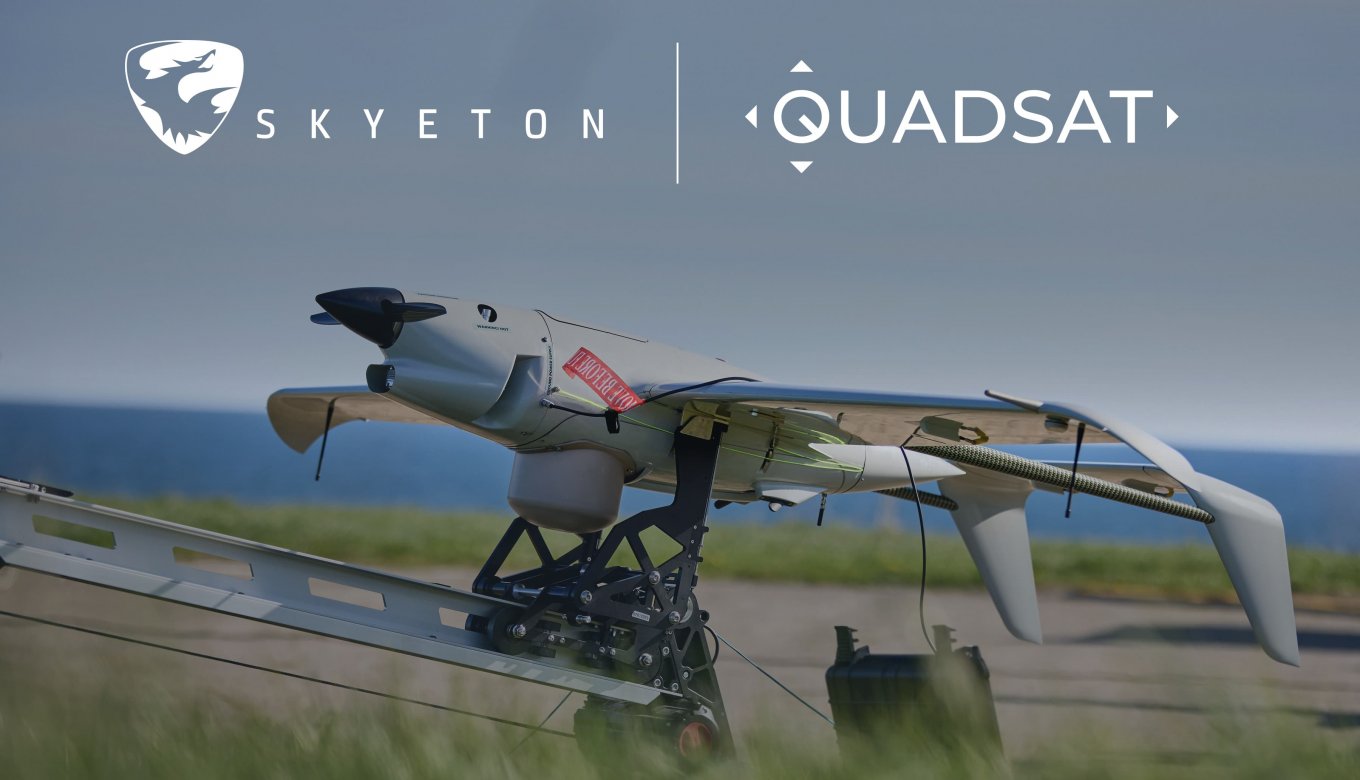
The new ELINT system will be combined with Skyeton's flagship product, the Raybird, most likely with minimum modifications but photos suggest that a special radar-transparent radome will be added for better aerodynamics.
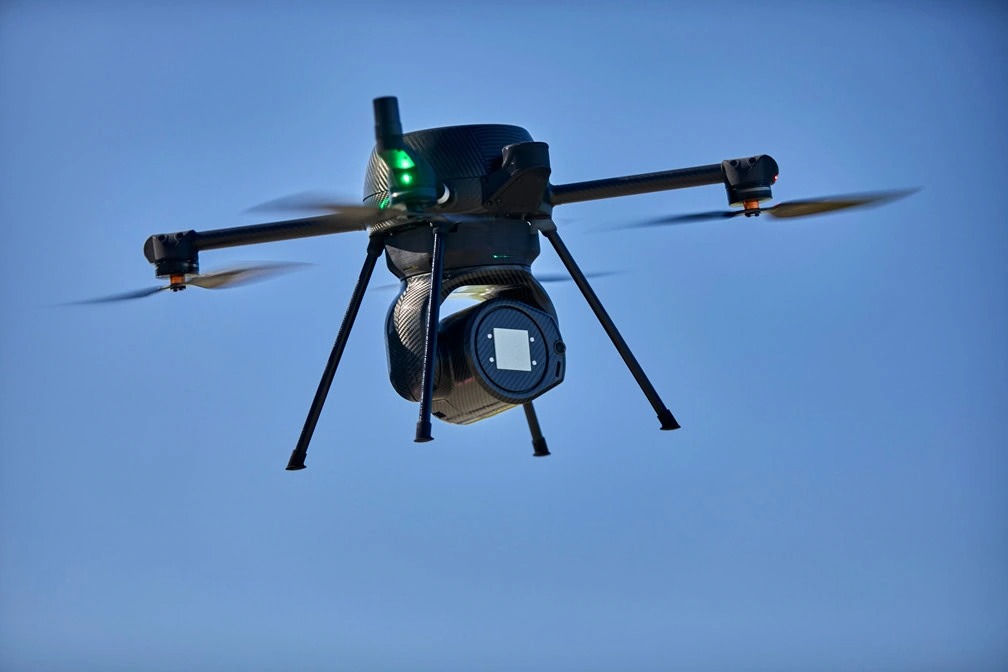
The specifications of the payload are not disclosed yet, but the partners promise to deliver a "a highly effective, scalable, and tactically agile solution for acquiring real-time electromagnetic spectrum intelligence" with "real-time spectrum monitoring and RF target detection capabilities" and showcase the product at the International Drone Show 2025 in Denmark on June 18–19.
Based on Quadsat's portfolio, a system capable of covering hundreds of square kilometers with a target detection accuracy within 100 x 100 meters should be expected, as in the QS RF Locator.
Although this might seem like too large of an error margin, this definition should be good enough for most of Raybird's missions, especially if it works in tandem with another UAV, which is a common tactic, or a long-range kamikaze drone like the Rubaka, known for strikes on air defenses in russian-occupied Crimea.
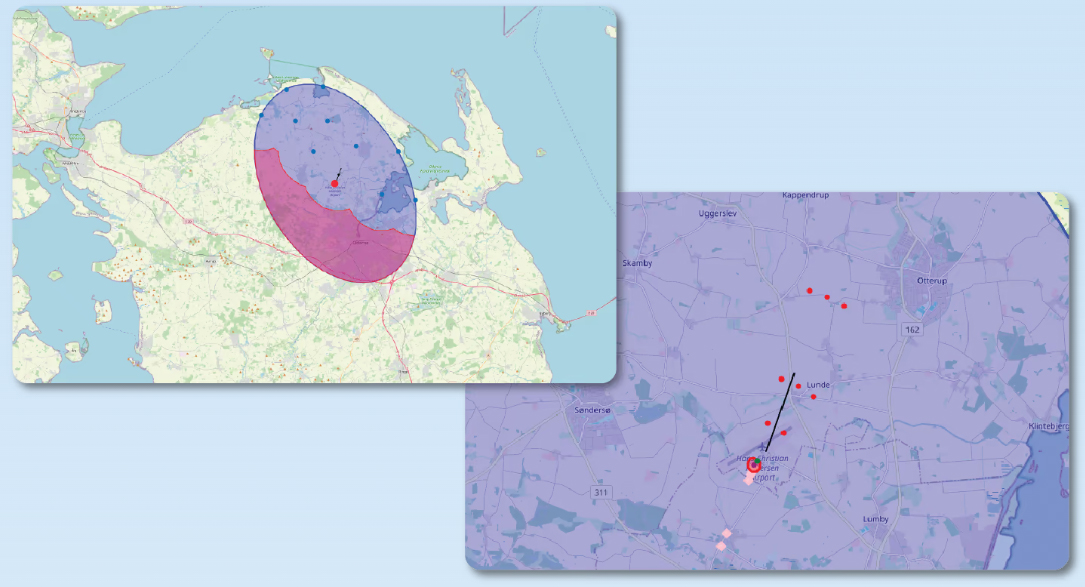
The carrier, Raybird-3 UAV, was introduced by the Ukrainian company Skyeton in 2014 and has continued developing even after entering service. This drone has already flown more than 300,000 hours, setting a national record for continuous flight duration in 2019 by spending a whole day in the air, later broken again by performing a 28-hour flight.
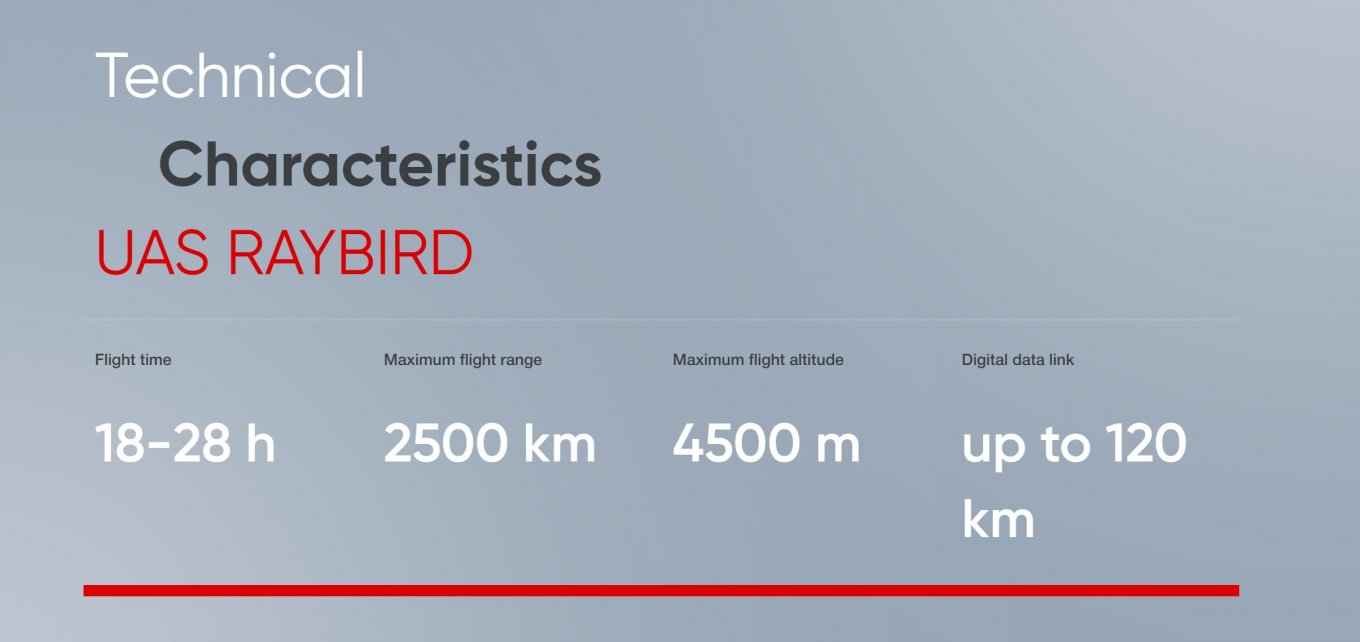
Raybird-3 can cover distances up to 2,500 km autonomously but the maximum control link range is limited to 220 km, the altitude ceiling is 5.5 km. The drone is usually launched from a catapult, although the company previously revealed that it could be deployed from a launcher mounted on a pickup truck.
The Raybird-3 can operate in contested environments under enemy electronic warfare suppression. Weighing 22 kg, it can carry up to 5 kg of payload: either an optical sighting station, a laser target designator, or the new electronic reconnaissance system.
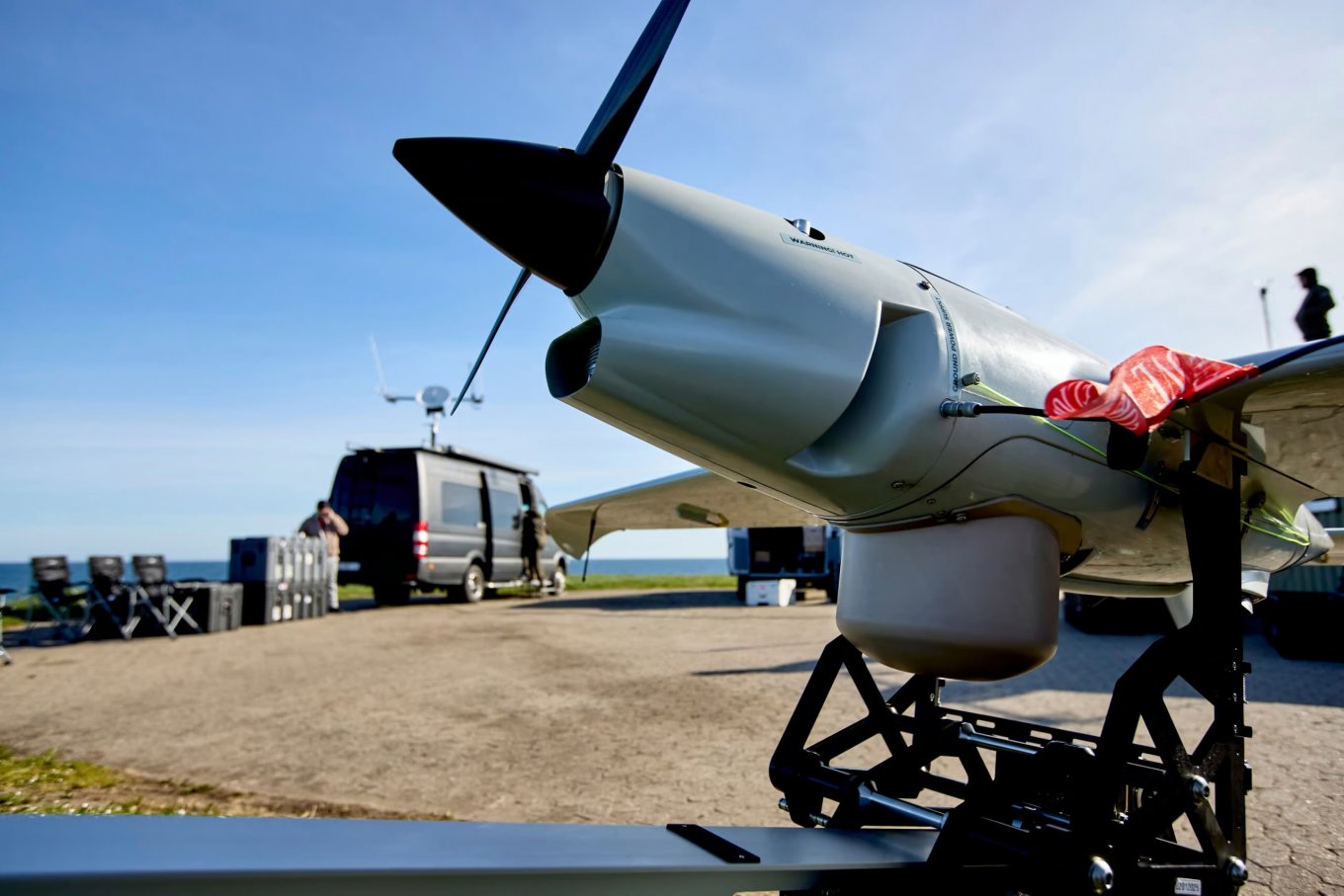
Read more: Ukraine to Support Drone Factory in the Baltics Capable of Producing Hundreds of Thousands of UAVs Annually




